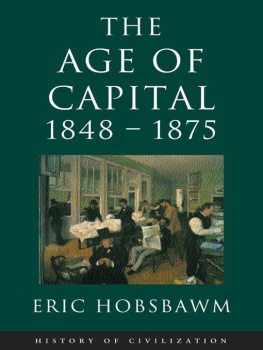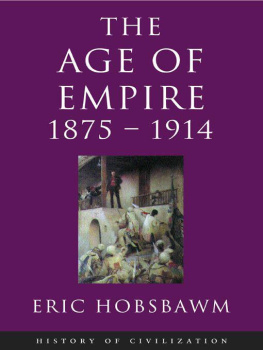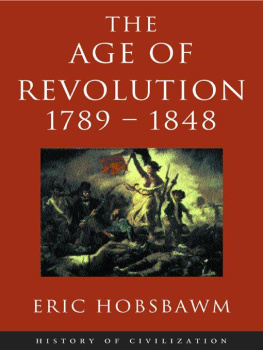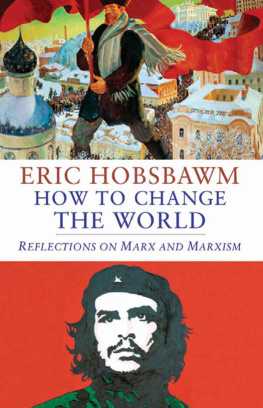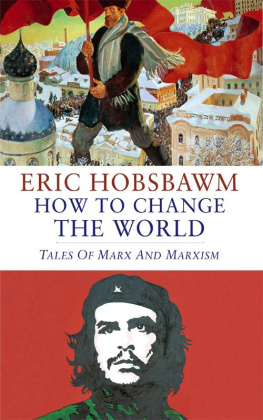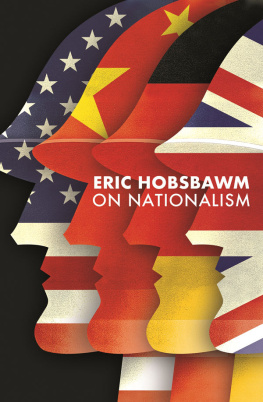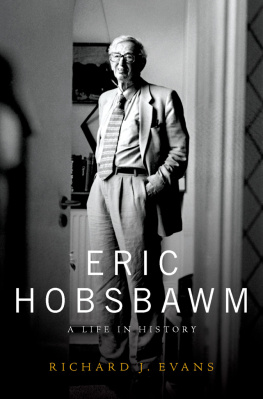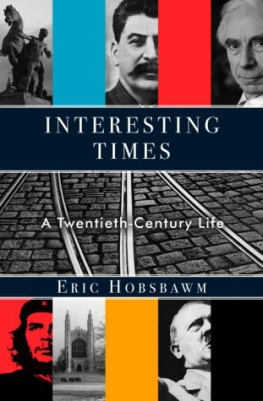Eric Hobsbawm - Viva La Revoluciaon: On Latin America
Here you can read online Eric Hobsbawm - Viva La Revoluciaon: On Latin America full text of the book (entire story) in english for free. Download pdf and epub, get meaning, cover and reviews about this ebook. year: 2017, publisher: Little Brown and Company, genre: Art. Description of the work, (preface) as well as reviews are available. Best literature library LitArk.com created for fans of good reading and offers a wide selection of genres:
Romance novel
Science fiction
Adventure
Detective
Science
History
Home and family
Prose
Art
Politics
Computer
Non-fiction
Religion
Business
Children
Humor
Choose a favorite category and find really read worthwhile books. Enjoy immersion in the world of imagination, feel the emotions of the characters or learn something new for yourself, make an fascinating discovery.

- Book:Viva La Revoluciaon: On Latin America
- Author:
- Publisher:Little Brown and Company
- Genre:
- Year:2017
- Rating:3 / 5
- Favourites:Add to favourites
- Your mark:
- 60
- 1
- 2
- 3
- 4
- 5
Viva La Revoluciaon: On Latin America: summary, description and annotation
We offer to read an annotation, description, summary or preface (depends on what the author of the book "Viva La Revoluciaon: On Latin America" wrote himself). If you haven't found the necessary information about the book — write in the comments, we will try to find it.
Viva La Revoluciaon: On Latin America — read online for free the complete book (whole text) full work
Below is the text of the book, divided by pages. System saving the place of the last page read, allows you to conveniently read the book "Viva La Revoluciaon: On Latin America" online for free, without having to search again every time where you left off. Put a bookmark, and you can go to the page where you finished reading at any time.
Font size:
Interval:
Bookmark:
The Age of Revolution 17891848
The Age of Capital 18481875
The Age of Empire 18751914
The Age of Extremes 19141991
Labouring Men
Industry and Empire
Bandits
Revolutionaries
Worlds of Labour
Nations and Nationalism Since 1780
On History
Uncommon People
The New Century
Globalisation, Democracy and Terrorism
How to Change the World
Fractured Times
Interesting Times
Published by Little, Brown
ISBN: 978-1-4087-0708-1
Copyright 2016 The Trustees of the Eric Hobsbawm Literary Estate
The moral right of the author has been asserted.
Introduction Copyright 2016 Leslie Bethell
All rights reserved. No part of this publication may be reproduced, stored in a retrieval system, or transmitted, in any form or by any means, without the prior permission in writing of the publisher.
The publisher is not responsible for websites (or their content) that are not owned by the publisher.
Little, Brown
Little, Brown Book Group
Carmelite House
50 Victoria Embankment
London EC4Y 0DZ
www.littlebrown.co.uk
www.hachette.co.uk
Before his death in 2012, at the age of ninety-five, Eric Hobsbawm brought together in How to Change the World (Little, Brown, 2011) a collection of his writings from 1956 to 2009 on Marx and Marxism. At the same time, he organized a collection of his writings and lectures (from 1964 to 2012) on culture and society in the twentieth century, which was published posthumously as Fractured Times (Little, Brown, 2013). And he left instructions that he would like a collection of his articles, essays and reviews on Latin America to be published. Erics literary executors, Bruce Hunter and Chris Wrigley, invited Leslie Bethell, a historian of Latin America and a friend of Erics for more than fifty years, to locate, select and edit Erics writings on the region, from an article in the New Statesman on the Cuban Revolution (October 1960) to his chapter on the Third World, mainly Latin America, in his autobiography Interesting Times (2002), and to contribute an introduction on Erics forty-year relationship with Latin America. Erics widow Marlene gave her enthusiastic support to the project.
Keith McClellan generously made available to the editor his Bibliography of the writings of Eric Hobsbawm (to February 2010). Andrew Gordon, Erics literary agent at David Higham Associates, together with his assistants Marigold Atkey and David Evans, undertook the digitisation of many of the texts. At Little, Brown Zoe Gullen prepared the book for publication, and Sarah Ereira compiled the index.
In his autobiography Interesting Times: A Twentieth-Century Life, published in 2002 when he was eighty-five years old, the historian Eric Hobsbawm (19172012) wrote that the only region of the world outside Europe which he felt he knew well and where he felt entirely at home was Latin America.
Eric had first been attracted to Latin America more In an unpublished introduction to a volume on twentieth-century revolutions, Eric wrote (in January 1967):
The Second World War produced a sort of chain-reaction of movements of revolutionary liberation The liberation movement finally began to advance in the informal empire of the largest and most powerful of the surviving capitalist powers, among the nominally independent but in practice semi-colonial countries of Latin America. Here, revolutionary movements had failed to develop into more than anarchic civil wars (as in Colombia after 1948) or succeeded in the rather exceptional circumstances of Bolivia (1952). However, the victory of Fidel Castro in Cuba (1959) was soon to bring the first socialist regime into the American continent, and to open an era of unrest there which has not yet concluded [my italics].
It was above all the expectation, or hope, that there would be social revolution, or at least significant social change, particularly in Peru and Colombia, briefly in Chile, later in Central America and Venezuela, finally in Brazil, that sustained Erics interest in Latin America throughout the following decades.
A member of the Communist Party of Great
In April 1961, along with Kenneth Tynan, the drama critic, Eric mobilized the great and the good to sign a letter to The Times denouncing
Curiously, apart from a few remarks in an entertaining account of the Cultural Congress of Havana in January 1968, However, for all its achievements, by the late 1960s Cuba was not exactly a showcase for successful socialist revolution in Latin America. And it would soon no longer be true that those who do not like the place are free to emigrate. Moreover, as we shall see, Eric was a fierce critic of the guerrilla movements the Cuban Revolution inspired throughout the region and beyond.
On 31 October modern and the archaic. These were, in his view, invariably misinterpreted
as when the Gaitn movement was described as Liberal because its leader happened to operate within one of the traditional Colombian parties, or Fascist as in Perns case [in Argentina], or very likely Communist in the case of Castroist movements As the ideological indeterminacy of intellectual elites in recent
On his return to London, between April and July 1963 Eric published a series of articles in Labour Monthly, New Society, the Listener (the texts perhaps for Argentina and Uruguay, ripe for social revolution, if properly organized and led.
He was especially impressed by the potential for revolution of peasant movements in Peru and, above all, in Colombia, which were virtually unknown to the outside world. Beginning in the late 1950s and reaching a peak in the early 1960s, the central and southern highlands of Peru had witnessed the largest mass insurrection and political mobilization of Indian peasants since the Tupac Amaru rebellion in the late colonial period. If any country is ripe for and needs a social revolution, Eric wrote, it is Peru. In Colombia, exceptionally in Latin America, a social revolution had been in preparation since the 1920s. [It] ought logically to have produced something analogous to Fidelismo, a populist left-wing regime working closely with the communists. The insurrection in Bogot in April 1948, the Bogotazo, was a phenomenon of revolutionary proportions. But with no one to direct and organize it a classic social revolution was aborted by the assassination of the Liberal leader Jorge Elicer Gaitn. However, in the civil war and anarchy that followed, the beginnings of what became known as La Violencia, Colombia witnessed the greatest armed mobilization of peasants (as guerrillas, brigands or self-defence groups [organized by the Communist Party]) in the recent history of the western hemisphere, with the possible exception of periods during the Mexican Revolution of 191020. A revolutionary situation persisted in Colombia in the early 1960s, Eric argued, and, because of its size, population, balanced all-round economy and strategic location between the Caribbean, Central America and Venezuela and the Andean republics and Brazil, Colombia can make a decisive difference to the future of Latin America, whereas Cuba is not likely to do so.
In Brazil Eric had been shocked by the economic backwardness and poverty he found in Recife, the first city he visited on his in the organization of agricultural wage-labourers into rural unions in the north-east.) In any event, in March 1964, a year after Erics visit, all hope of social revolution in Brazil would be crushed by a military coup leading to the establishment of a military dictatorship which lasted for twenty-one years (196485).
Eric wrote relatively little on the potential for revolution in Brazil. Typically,
Next pageFont size:
Interval:
Bookmark:
Similar books «Viva La Revoluciaon: On Latin America»
Look at similar books to Viva La Revoluciaon: On Latin America. We have selected literature similar in name and meaning in the hope of providing readers with more options to find new, interesting, not yet read works.
Discussion, reviews of the book Viva La Revoluciaon: On Latin America and just readers' own opinions. Leave your comments, write what you think about the work, its meaning or the main characters. Specify what exactly you liked and what you didn't like, and why you think so.

